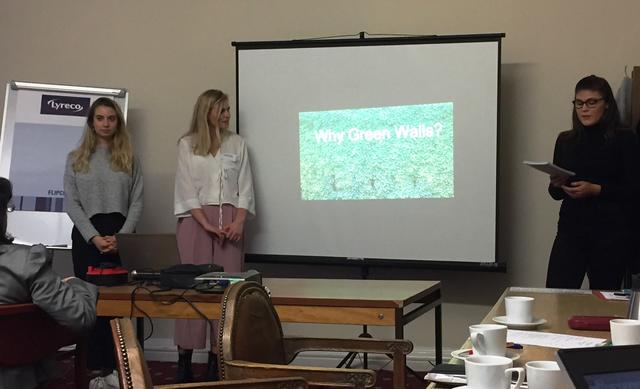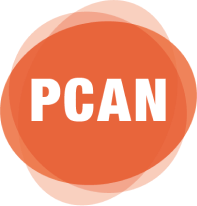Leeds State of the City - Climathon workshop
12th December, 2017 - 15:17

Written by Helena Darby, Project Support Officer Economic Policy, Innovation & Sector Development, Leeds City Council
The Leeds State of the City meeting is an annual high profile, civic event which brings together councillors from every ward in the city, directors and officers, as well as a range of external partners. The event raises awareness of a current challenge that the city faces, and the work being done to tackle the issue across Leeds. The theme for this year chosen by the Leader, Councillor Judith Blake, was air quality.
Programme
The first session began with an introduction from Councillor Blake, giving an overview of the challenges in Leeds and referencing the wider health impacts. This was followed by a brief summary from Councillor Lucinda Yeadon about the work being done as part of the Clean Air Leeds campaign, fleet changes and pledges from businesses to do their bit to reduce their emissions. Neil Evans, the Director of Resources and Housing, then spoke about the plans for Leeds’ Clean Air Zone which will be in place by the end of 2019 and cover the area within the outer ring road. Alison York from the British Lung Foundation gave a compelling speech about the importance of air quality as a public health issue.
The second session comprised themed workshops on seven topics across a range of areas, from the role of business in tackling air pollution (led by UPS), health impacts (Dr Paul Whitaker of Leeds Teaching Hospitals Trust), the potential of electric vehicles (Arup), and Leeds Climathon 2017 winning ideas (Priestley International Centre for Climate/Leeds Climate Commission).
Leeds Climathon
The Climathon workshop brought councillors, officers and business together to discuss the winning ideas from the Leeds Climathon 2017 (26-27 October) and brainstorm how they can become a reality. Councillor Mohammad Rafique and Councillor Brian Cleasby chaired the workshop, with Catherine Graves of Leeds Climate Commission introducing the concept of the Climathon and key aims before giving an overview of the event.
Plants for pollution
The Climathon resulted in two winning teams, Plants for Pollution, and Be a Stop Idol, both of whom were invited to present their ideas.
University of Leeds students Charlotte, Ana and Lucia from Plants for Pollution went first. Their idea is for a wall of plants used to take in air pollutants such as NO2 and black carbon, located in a pollution hotspot in the city. Through public engagement carried out during the Climathon, a member of the public suggested to the team that the Woodhouse Lane car park would be an ideal location for this. As well as being on a busy junction, it is on a key walking and cycle lane into the city and there is a bus stop located just outside. Their research led to the decision that ivy would be grown up an external frame attached to the car park wall for two reasons: ivy is a low maintainance plant, hence wouldn’t put the Council’s gardeners under pressure adding to their workload; it is also an evergreen and therefore its leaves would take in pollutants throughout the year.
Councillors and business partners were then asked to discuss the idea and offer advice to help get it off the ground. Councillor Ogilvie suggested that they could get in touch with the Council’s parks and countryside department to discuss the feasibility and get advice on the best plants to use. The Council’s plant nursery, the Arium, was discussed as a potential source of ivy plants. The team were questioned on their ideas for funding this initiative, which could be funded through a nominal additional charge for the car park (using the "polluter pays" principle), letting drivers know that the charge would be going towards reducing pollution in the city.
Attendees deliberated the funding approach and decided that if one car park did this, others may feel compelled to do the same. Councillors asked the group that they create a ‘how to’ kit for communities, so that the idea could be replicated in the future across other wards. Overall, the workshop attendees thought the idea was brilliant, particularly Councillor Nash, who told the group that she would sponsor them from her Ward-Based Initiative Fund. A representative from the University of Leeds suggested that Plants for Pollution could also contact the incubator Spark at the University as a way to progress their idea.
Be a Stop Idol
Next up, Rachel, Paul, Myra and Josh from the campaign group Healthy Air Leeds spoke about their winning idea ‘Be a Stop Idol’. The concept is a city-wide awareness raising campaign to encourage the people of Leeds to make a small change in behaviour to switch off their car engines when they are stationary, particularly at major junctions and schools. They envisage this involving messages on billboards and road signs, as well as a focussed schools campaign to educate young people and use the valuable tool of pester power to get the message out to parents.
Again, Councillors and business partners were encouraged to ask questions and discuss the idea to offer their thoughts on what would improve the idea or help it develop. Some of the attendees were shocked by the fact that pollution could be higher sat inside a car than walking or cycling alongside and agreed this was a strong message that should be shared in the campaign.
Councillor Cleasby suggested contacting the local TV and radio stations to ask them to share this information to nudge drivers to switch off. It was agreed that the cost associated with this campaign could be as long as a piece of string, and the group were advised to contact the Council’s communications department to look into the cost of specific advertising such as billboards and then to look into funding streams. Councillor Nash suggested that wheelie bin stickers may be a cost effective way of raising awareness in the most polluted areas.
The group established that schools would be the key to encouraging this behaviour change on a city-wide scale, and that a focused campaign in schools would be pivotal to getting the message out. The team were encouraged to contact officers in air quality and sustainable travel, who run campaigns in schools such as ‘Bikeability’ and ‘Walk to School week’.
Overall the workshop left both teams with a better understanding of how best to progress their ideas, and how the Council and wider city can support this work. We look forward to seeing how these ideas advance from this initial stage into reality and help to tackle air pollution across the city.
Many thanks to Helena for contributing this article.


